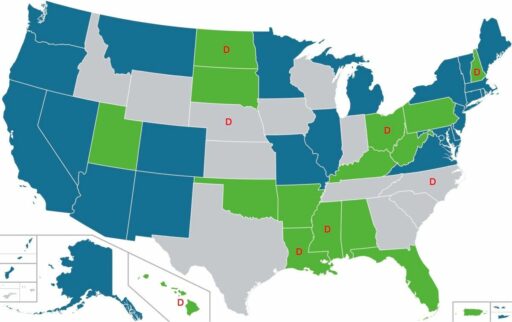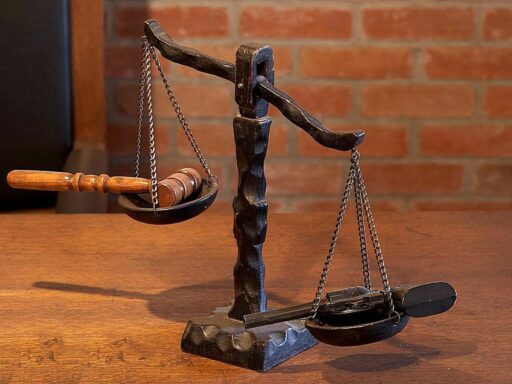Pennsylvania’s Medical Marijuana Program offers therapeutic relief for patients with qualifying conditions. This guide provides a comprehensive overview of navigating the process, from understanding the state’s laws to finding certified physicians. Whether you’re a patient or caregiver, our insights will help you manage the administrative steps and legal considerations to access medical cannabis effectively.
Key Takeaways
- Patients in Pennsylvania can possess up to a 30-day supply of medical cannabis with a valid medical marijuana card.
- The application process for a medical marijuana card includes registering online, scheduling an appointment with a certified physician, and paying a fee, which may be waived for certain assistance programs.
- Recreational use and cultivation of marijuana remain illegal in Pennsylvania, even for medical marijuana patients.
- Caregivers play a critical role in the Pennsylvania Medical Marijuana Program and must adhere to specific rules and responsibilities.
- Finding a PA medical marijuana doctor involves searching for qualified physicians and understanding the online evaluation process for obtaining a medical certification.
Understanding Pennsylvania’s Medical Marijuana Laws

Key Legal Considerations for Patients
When navigating Pennsylvania’s medical marijuana landscape, patients must be aware of the legal framework that governs its use. It’s crucial to understand the conditions that qualify for treatment, the documentation required, and the legal protections afforded to patients under state law.
- Qualifying conditions include chronic pain, PTSD, and multiple sclerosis, among others.
- Required documentation often involves proof of residency and medical records.
- Legal protections prevent discrimination against medical marijuana patients in areas like employment.
Patients should also be cognizant of the use motives and barriers to use in order to have effective conversations about medication options with their healthcare providers.
Understanding these key legal considerations can help ensure that patients remain compliant with state regulations while seeking relief through medical marijuana.
Possession and Purchase Limits
In Pennsylvania, the medical marijuana program sets specific guidelines for the amount of cannabis that patients can legally purchase and possess. Qualifying medical marijuana patients are allowed to purchase and possess up to a 90-day supply of marijuana as recommended by their pharmacist. This ensures that patients have uninterrupted access to their medication while also preventing any potential misuse or diversion of cannabis products.
It is crucial for patients to adhere to these limits to remain compliant with state regulations and to ensure the integrity of the medical marijuana program.
Patients should be aware that the possession limits are subject to the discretion of their pharmacist, who will determine the appropriate supply based on the patient’s individual needs and the recommendations of their certifying physician. Here is a summary of the key points regarding possession and purchase limits in Pennsylvania:
- Up to a 90-day supply can be purchased and possessed by patients.
- The specific amount is determined by the pharmacist’s recommendation.
- Patients must keep their medical marijuana card on hand when purchasing cannabis.
- Compliance with these limits is essential for legal protection and program integrity.
Restrictions on Cultivation and Recreational Use
In Pennsylvania, the cultivation of marijuana plants for personal or medical use remains illegal. Patients and caregivers are not permitted to grow their own cannabis under the state’s medical marijuana laws. This restriction is in place to ensure that all medical marijuana products come from regulated and approved sources, maintaining the integrity and safety of the program.
Recreational use of marijuana is also prohibited in Pennsylvania. Despite the legalization of medical marijuana, the state has not passed laws allowing for recreational consumption or possession. Individuals found in possession of marijuana without a valid medical marijuana card may face legal penalties.
It is essential for patients and caregivers to understand these restrictions to avoid legal complications and ensure they are in compliance with state regulations.
Here is a summary of the key restrictions:
- No cultivation of marijuana plants by patients or caregivers
- Recreational use of marijuana is illegal
- Possession without a medical marijuana card can lead to legal consequences
The Process of Obtaining a Medical Marijuana Card in PA

Registering on the PA Medical Marijuana Program Website
The first step to accessing medical marijuana in Pennsylvania is to register on the Pennsylvania Medical Marijuana Program website. Upon completing the registration, you will immediately receive a patient number, which is essential for the subsequent steps in the process.
To register, you’ll need to create an account with a valid email address. During this process, you’ll be asked to fill out a brief questionnaire about your personal and health information. It’s also required by law to verify your identity, so be prepared to take or upload a photograph of your identification. Ensure you have a smartphone, computer, or tablet with a reliable internet connection for this process.
Once you’ve registered and obtained your patient number, you can proceed to the next steps, which include scheduling an appointment with a certified physician and completing your application.
Remember, there’s a $50 state fee to process your application, but if you’re part of assistance programs like Medicaid or SNAP, you might be eligible for a fee waiver.
Scheduling an Appointment with a Certified Physician
Once you’ve registered on the PA Medical Marijuana Program website, the next step is to schedule an appointment with a certified physician. Finding a qualified physician is crucial, as they will evaluate your condition and determine if you are eligible for medical marijuana use. Here are some steps to help you schedule your appointment:
- Look for physicians who are registered with the Pennsylvania Medical Marijuana Program. You can find a list on the state’s Department of Health website.
- Contact the physician’s office to inquire about appointment availability. For example, you can reach out to Dr. John G. Kuna and Associates at 570-961-3361 or via email at schedulers@drjohngkuna.com.
- Prepare any medical records or documentation that may be required for your consultation. This may include previous diagnoses, current medications, and any other relevant health information.
It’s important to ensure that all your personal information is accurate and up-to-date before your appointment. This includes verifying your contact details and ensuring your physician has the correct patient number if you’re renewing your certification.
Remember to ask about the consultation fee and whether the office accepts insurance or offers any fee waivers. Some offices may provide resources and referrals for additional support, so don’t hesitate to inquire about these services.
Completing the Application and Paying the Fee
Once you’ve scheduled your appointment and consulted with a certified physician, the next step is to complete your application. Log back into the Pennsylvania Medical Marijuana Registry and follow the prompts to fill out your application accurately.
After submitting your application, you will need to pay the state fee. The standard fee is $50, but there’s good news for those enrolled in assistance programs:
- Medicaid
- PACE/PACENET
- CHIP
- SNAP
- WIC
If you’re a participant in any of the above programs, you may qualify for a fee waiver, reducing the cost to $0. This is a significant benefit that helps ensure the program is accessible to all qualifying patients, regardless of their financial situation.
Once your fee is processed, expect your medical marijuana card to be mailed to your address. The card typically arrives within 1-2 weeks, marking the final step in the application process. Keep an eye on your mailbox, as this card is your passport to accessing medical marijuana dispensaries in Pennsylvania.
Receiving Your Medical Marijuana Card
Once you have completed the application and paid the necessary fee, the final step in the process is to receive your medical marijuana card. This card is your passport to legally purchasing and possessing medical cannabis in Pennsylvania.
After your payment has been processed, the state will mail your medical marijuana card to your registered address. It is important to note that the card typically arrives within 1-2 weeks. Ensure that your mailing information is accurate to avoid any delays.
With your medical marijuana card in hand, you are now ready to visit approved dispensaries. Remember to bring a valid form of photo identification, such as a driver’s license, alongside your card when making purchases.
For those who are part of assistance programs like Medicaid or SNAP, you may have had your application fee reduced to $0, making the process more accessible. Keep this card safe, as it is valid for one year and is essential for your continued access to medical cannabis.
Navigating the PA Medical Marijuana Registry

Step-by-Step Guide to the Online Registration
Once your Leafwell physician has approved you for medical marijuana use, the next step is to register on the Pennsylvania Medical Marijuana Program website. Here’s a simple guide to help you navigate the online registration process:
- Before You Start: Ensure you have a credit or debit card ready for the application fee.
- Registration: Visit the Patient and Caregiver Registry and fill out all required information. Submit your details to create an online profile.
- Confirmation: Keep an eye on your email for a confirmation message that includes further instructions.
Remember, the Leafwell team has already sent the necessary details to the registry after your appointment, simplifying the process for you.
After registering, log back into the registry to complete your application. Follow the prompts carefully and pay the state fee. If you’re enrolled in qualifying assistance programs, you may be eligible for a fee waiver. Once your application is processed, your medical card will be mailed to your address, typically arriving within 1-2 weeks.
What to Do After Your Physician’s Approval
Once you have received approval from a certified physician, it’s crucial to act promptly to complete the next steps within the 60-day window. Failure to complete these steps on time may result in additional fees as your physician will need to resubmit your certification to the state.
Here’s what you need to do after getting your physician’s approval:
- Log into your PA Medical Marijuana Program account: Ensure all your personal details are current and accurate.
- Confirm your address: It’s essential that the address on file is correct to avoid any issues with card delivery.
- Make the payment: Use a credit or debit card to pay the necessary fee for your medical marijuana card.
Remember, staying on top of these steps is key to obtaining your Pennsylvania Medical Marijuana Card without delays or extra costs.
Fee Waivers for Qualifying Assistance Programs
In Pennsylvania, the medical marijuana program offers fee waivers to individuals who participate in certain assistance programs. Eligibility for these waivers is crucial for patients who may find the standard fees a barrier to accessing medical marijuana treatment.
To apply for a fee waiver, patients must provide proof of participation in one of the qualifying assistance programs. The following list outlines the programs that are typically recognized for fee waivers:
- Medicaid
- PACE/PACENET
- CHIP
- SNAP
- WIC
- Supplemental Security Income (SSI)
- Social Security Disability Insurance (SSDI)
Remember, the fee waiver is only one part of the application process. Ensuring that you meet all other requirements is equally important for obtaining your medical marijuana card.
Once you have gathered the necessary documentation, you can submit your fee waiver request through the PA Medical Marijuana Program website. If approved, this will reduce the financial burden and help you move forward with your treatment plan.
Selecting a PA Medical Marijuana Doctor

Finding Qualified Physicians
Finding a qualified physician is a critical step in accessing medical marijuana in Pennsylvania. To ensure that you are receiving the best care and advice, it’s important to choose a doctor who is not only certified to recommend medical marijuana but also has a good understanding of how it can be used to treat your specific condition.
- Look for physicians who are registered with the PA Medical Marijuana Program.
- Check for doctors with positive reviews or recommendations from other patients.
- Consider the physician’s experience with your particular qualifying condition.
Remember, a knowledgeable and empathetic physician can make a significant difference in managing your health with medical marijuana.
It’s also essential to verify that the physician you select is in good standing with the state medical board and has no history of malpractice. A little research can go a long way in ensuring a positive experience with medical marijuana treatment.
The Online Evaluation Process
The shift towards online evaluations has streamlined the process of obtaining a medical marijuana card in Pennsylvania. Patients can now connect with certified physicians remotely, ensuring a more convenient and accessible path to medical cannabis. The online evaluation typically involves a virtual consultation where the doctor assesses your medical condition and discusses potential benefits and risks associated with marijuana use.
To prepare for your online evaluation, consider the following steps:
- Ensure you have a stable internet connection and a device with a camera and microphone.
- Gather any relevant medical records or documentation that supports your condition.
- Be ready to discuss your medical history and current symptoms.
- Have a list of questions or concerns to address during the consultation.
Remember, honesty during your evaluation is crucial for the physician to provide an accurate assessment and appropriate recommendations.
After the evaluation, if the physician determines that you qualify for medical marijuana use, they will certify your condition on the PA Medical Marijuana Program website. This certification is a necessary step before you can complete your application for a medical marijuana card.
What to Expect During Your Medical Consultation
When you schedule a medical consultation for a Pennsylvania medical marijuana card, you’re embarking on a personalized journey towards wellness. Expect a one-on-one consultation with a cannabis expert who will help craft a treatment plan tailored to your specific needs. This plan will include detailed strain selections, ratios, and dosing instructions to ensure you receive the most effective treatment.
During the consultation, you will discuss your medical history and any qualifying conditions that may make you eligible for medical marijuana use. It’s important to be open and honest with your physician to get the best possible care. Here’s a brief overview of what the consultation may cover:
- Review of medical history and symptoms
- Discussion of potential qualifying conditions
- Selection of appropriate cannabis strains
- Determination of proper dosing and ratios
Remember, the goal of the consultation is to provide you with a comprehensive treatment plan that addresses your health concerns and improves your quality of life.
After your consultation, you should have a clear understanding of how medical marijuana can be integrated into your treatment regimen. If you have any questions or concerns, don’t hesitate to ask your physician for clarification.
Role of Caregivers in Pennsylvania’s Medical Marijuana Program

Becoming a Registered Caregiver
To become a registered caregiver in Pennsylvania’s Medical Marijuana Program, certain steps and criteria must be followed. Firstly, complete the patient and caregiver application form using the patient’s ID number if they are already registered. A background check is mandatory for all caregivers, ensuring the safety and integrity of the program.
Eligibility is a key factor in the caregiver application process. You must possess a valid Pennsylvania driver’s license or a PA state-issued ID card. It’s important to note that individuals with a criminal record related to drug offenses within the past five years are ineligible to become caregivers. Caregivers have the ability to provide care for up to five patients, allowing for a supportive network for those in need of medical marijuana.
As a caregiver, you have the privilege of picking up medical marijuana from a dispensary on behalf of the patient. This is especially beneficial for patients who are unable to visit dispensaries themselves.
Remember, each patient can designate up to two caregivers, and all minor patients require at least one caregiver. The application for a caregiver card is separate from the patient’s application, and both the caregiver and the patient will receive their respective medical marijuana identification cards upon approval.
Responsibilities and Limitations
Caregivers in Pennsylvania’s Medical Marijuana Program play a crucial role in assisting patients, but their responsibilities come with specific limitations to ensure compliance with state laws. Caregivers must be at least 21 years old unless authorized otherwise and are required to pass a criminal history background check. They are authorized to purchase and deliver medical marijuana to up to five patients, provided they are registered with the state’s program.
Caregivers are not permitted to consume the medical marijuana intended for patient use, and they must adhere to all purchase limits and regulations. It’s important for caregivers to stay informed about the evolving legal landscape to avoid any inadvertent legal issues.
Caregivers should be aware of the potential risks and responsibilities involved in assisting patients, including understanding the implications of prescription medical marijuana, such as adverse side effects and the risk of abuse or addiction.
Assisting Patients with Dispensary Visits
Caregivers play a crucial role in the Pennsylvania Medical Marijuana Program by ensuring that patients receive their medication without hassle. Caregivers are authorized to pick up medical marijuana on behalf of the patient, making the process more accessible for those who may have mobility or transportation challenges.
Caregivers must be aware of the specific identification and patient details required at the dispensary to verify the prescription. This includes the patient’s last name, date of birth, and the last five digits of the Social Security Number.
It’s important to note that each patient can have up to two designated caregivers. If the patient is a minor, the presence of a caregiver is mandatory. Caregivers should also remember that they need to submit a separate application to obtain their medical marijuana caregiver card.
Here is a quick checklist for caregivers when visiting a dispensary:
- Ensure you have the patient’s necessary identification and details for prescription verification.
- Confirm the patient’s prescription and purchase limits.
- Pick up the prescribed medical cannabis and deliver it to the patient.
Conclusion
As we’ve navigated the intricacies of finding PA medical marijuana doctors and understanding the state’s medical cannabis program, it’s clear that while the journey may seem daunting, the path is well-marked with resources and support. Remember, Pennsylvania’s medical marijuana program is designed with patient safety and accessibility in mind, from the legalities of possession to the steps for obtaining your medical card. Whether you’re a patient or a caregiver, staying informed and following the outlined procedures ensures a smoother process. With the right guidance, such as the services provided by Leafwell, and adherence to the state’s regulations, accessing medical marijuana in Pennsylvania can be a straightforward experience, leading you toward the relief and wellness you seek.
Frequently Asked Questions
What are the possession and purchase limits for medical marijuana in Pennsylvania?
In Pennsylvania, with a valid medical marijuana card, you can purchase and possess up to a 30-day supply of medical cannabis products. It’s important to always have your card with you.
What do I need to start the process of obtaining a medical marijuana card in PA?
To start the process, you’ll need a credit or debit card for payment and to follow a step-by-step guide provided after your appointment with a certified physician.
What are the next steps after getting physician approval for medical marijuana in PA?
After getting approval, you must complete the application process within 60 days, which includes logging back into the PA Medical Marijuana Registry, completing the application, paying the fee, and awaiting your card in the mail.
How much is the application fee for a Pennsylvania medical marijuana card, and are there any fee waivers?
The application fee for a Pennsylvania medical marijuana card is $50. However, participants in assistance programs like Medicaid, PACE/PACENET, CHIP, SNAP, or WIC may qualify for a $0 fee.
Can I use my Pennsylvania medical marijuana card for recreational purposes or grow my own cannabis?
No, recreational marijuana is illegal in Pennsylvania, and your medical card does not permit recreational use. Additionally, cultivation of cannabis is off-limits for medical marijuana patients in the state.
As a caregiver in Pennsylvania’s medical marijuana program, what are my responsibilities and limitations?
As a registered caregiver, your responsibilities include assisting patients with dispensary visits and managing their medical marijuana supplies. There are strict rules to follow, and you cannot use the medical marijuana for your own purposes.





